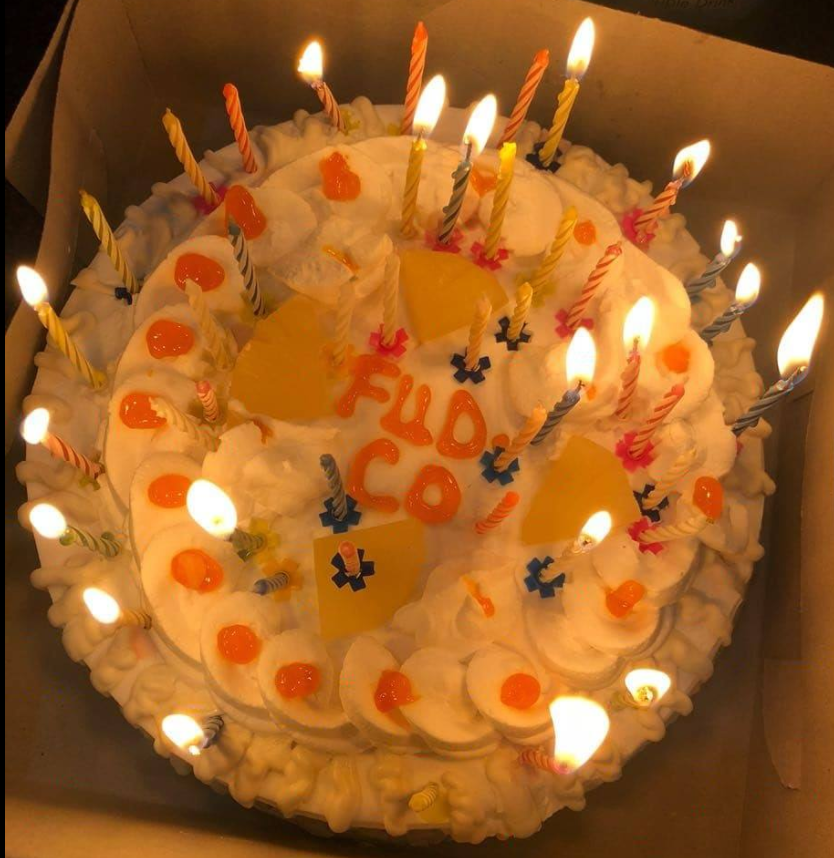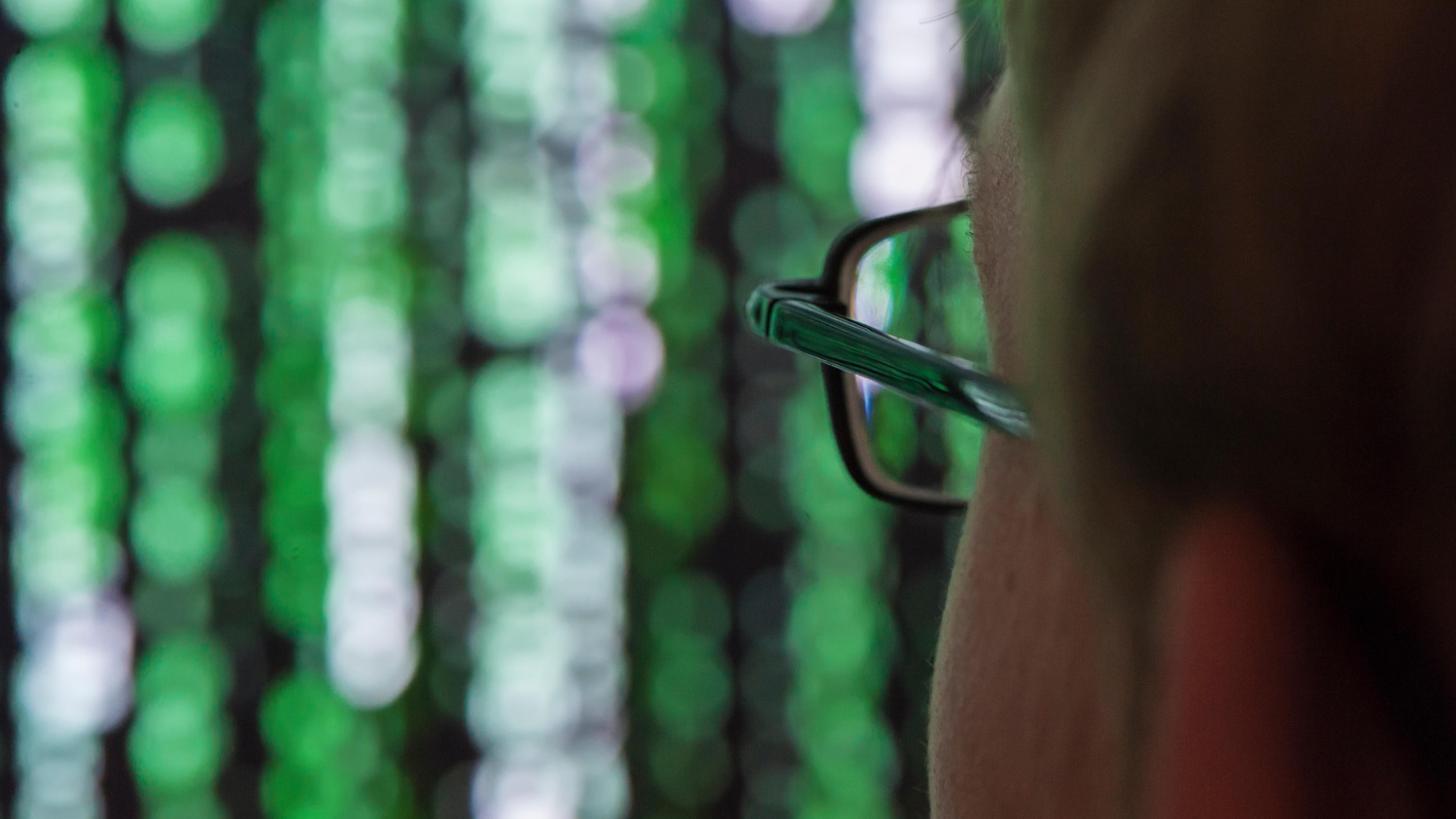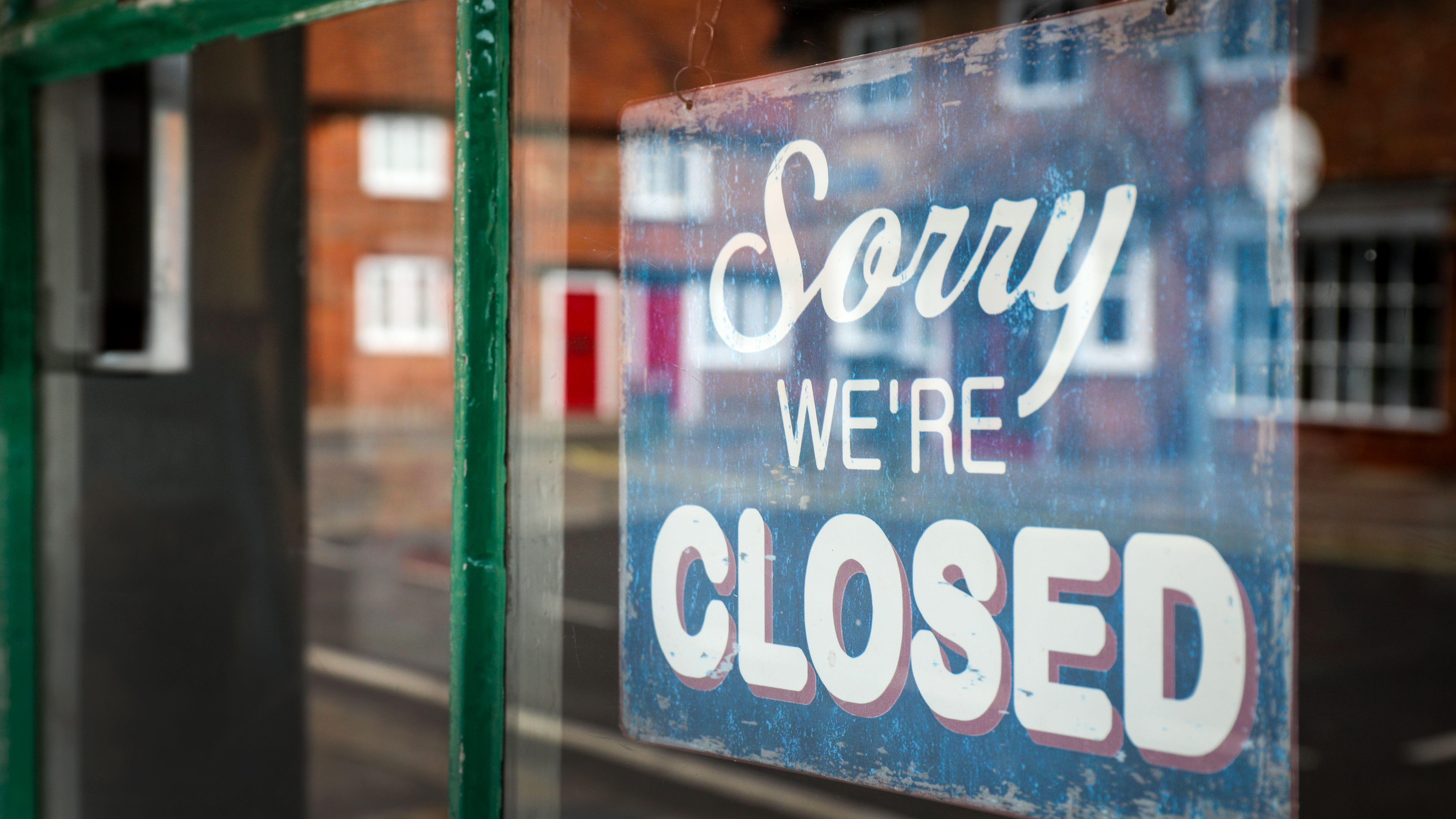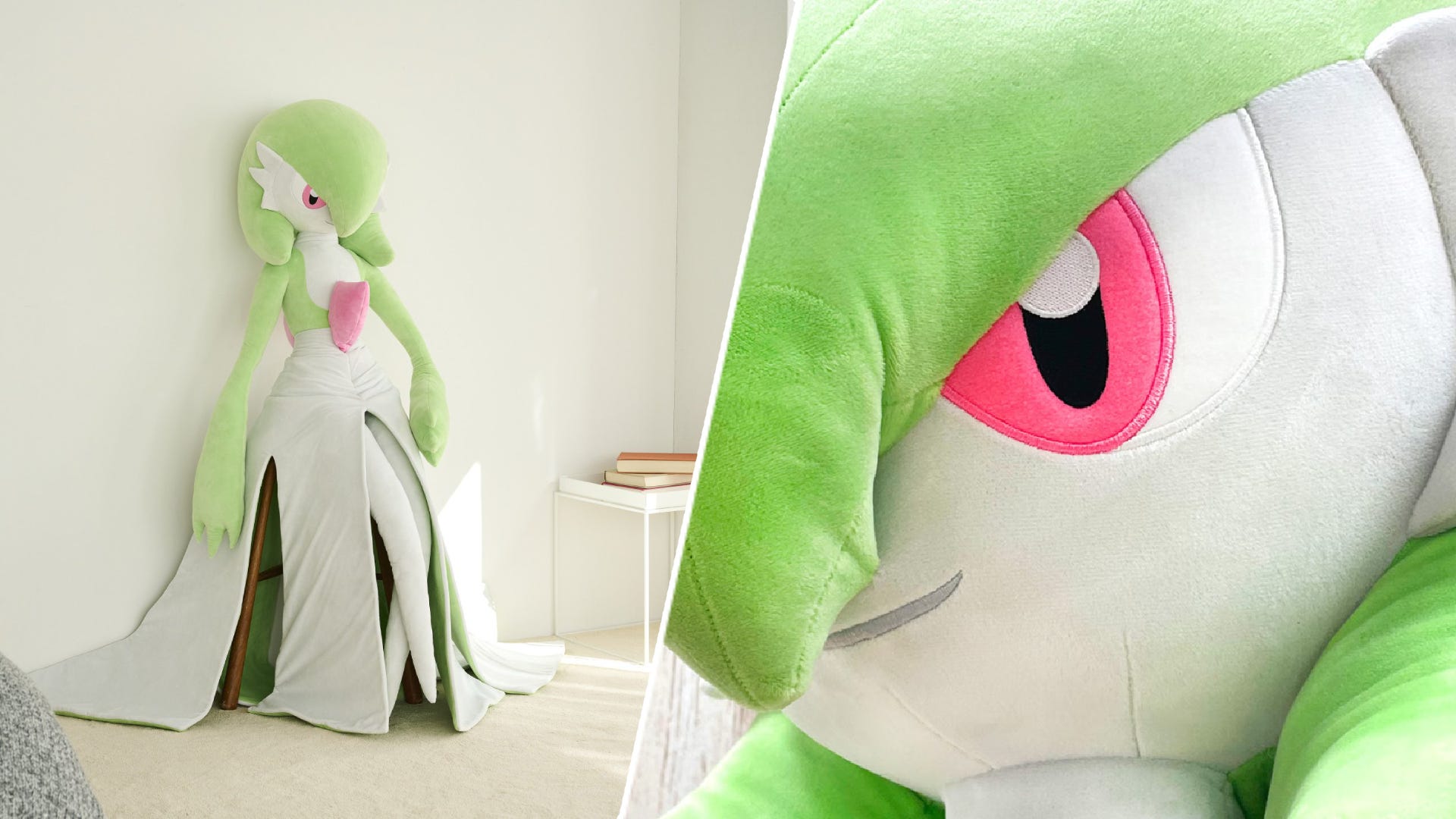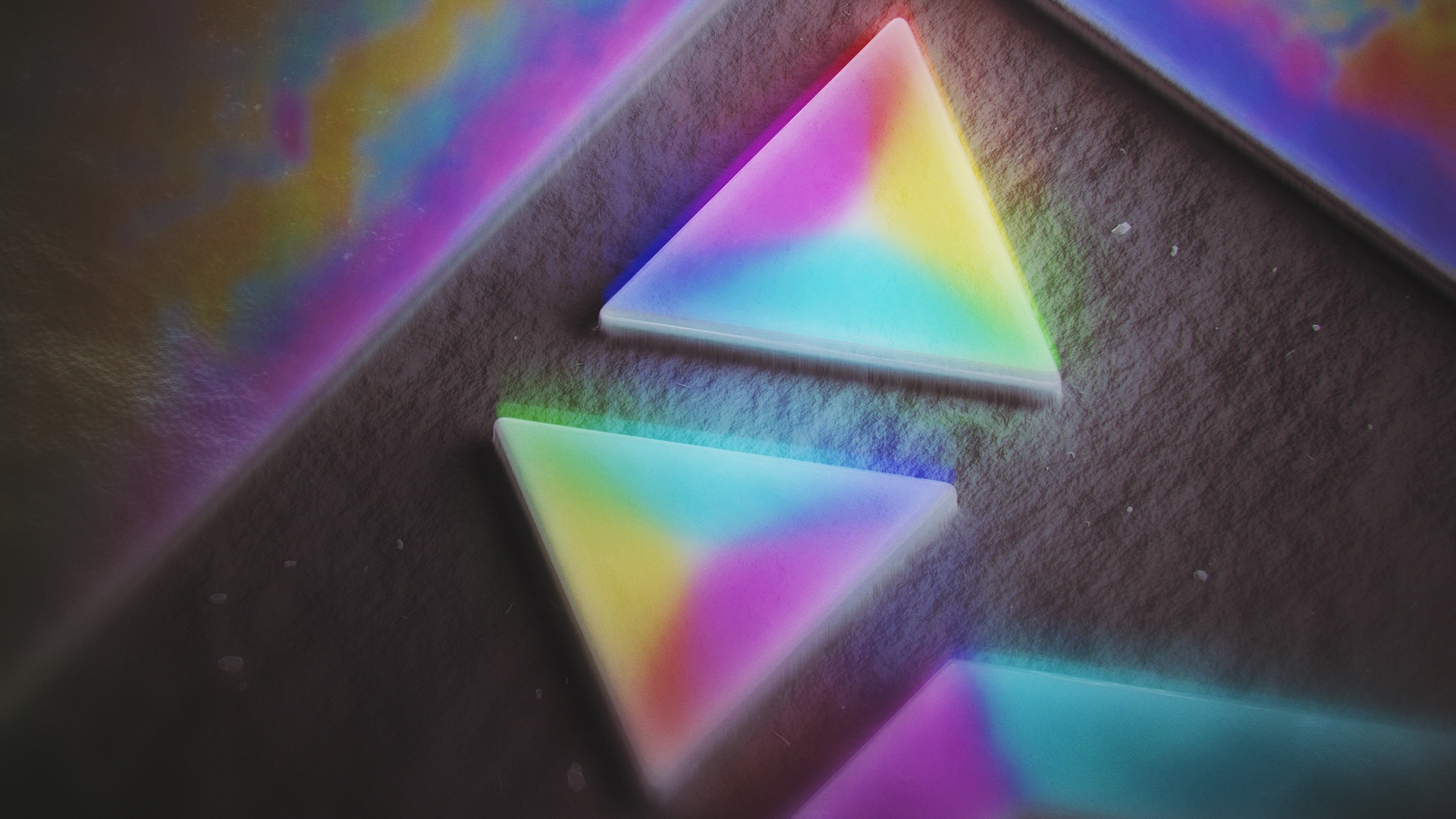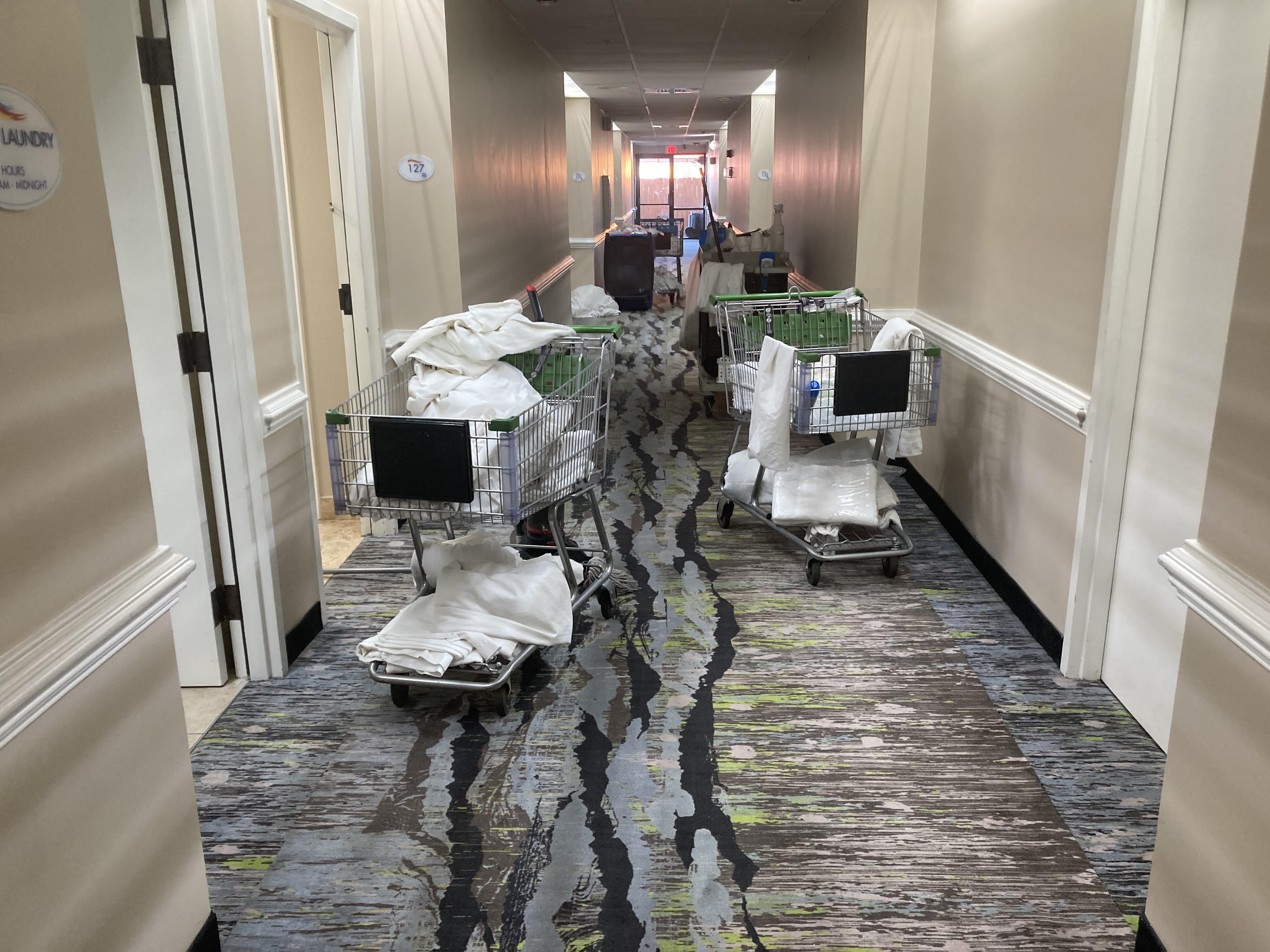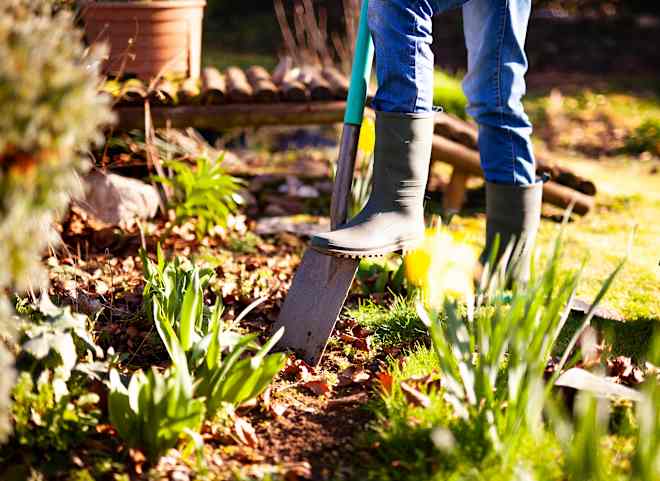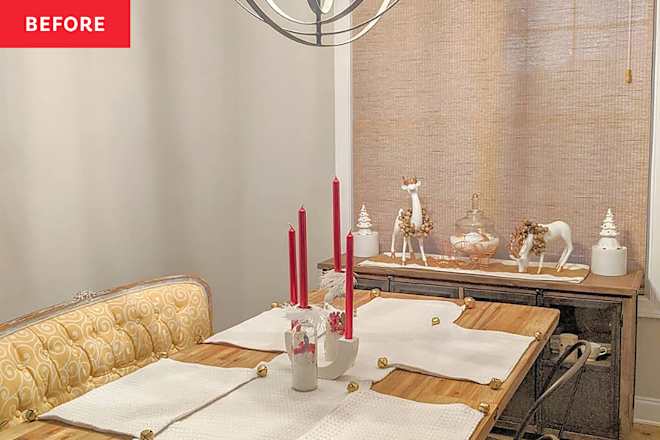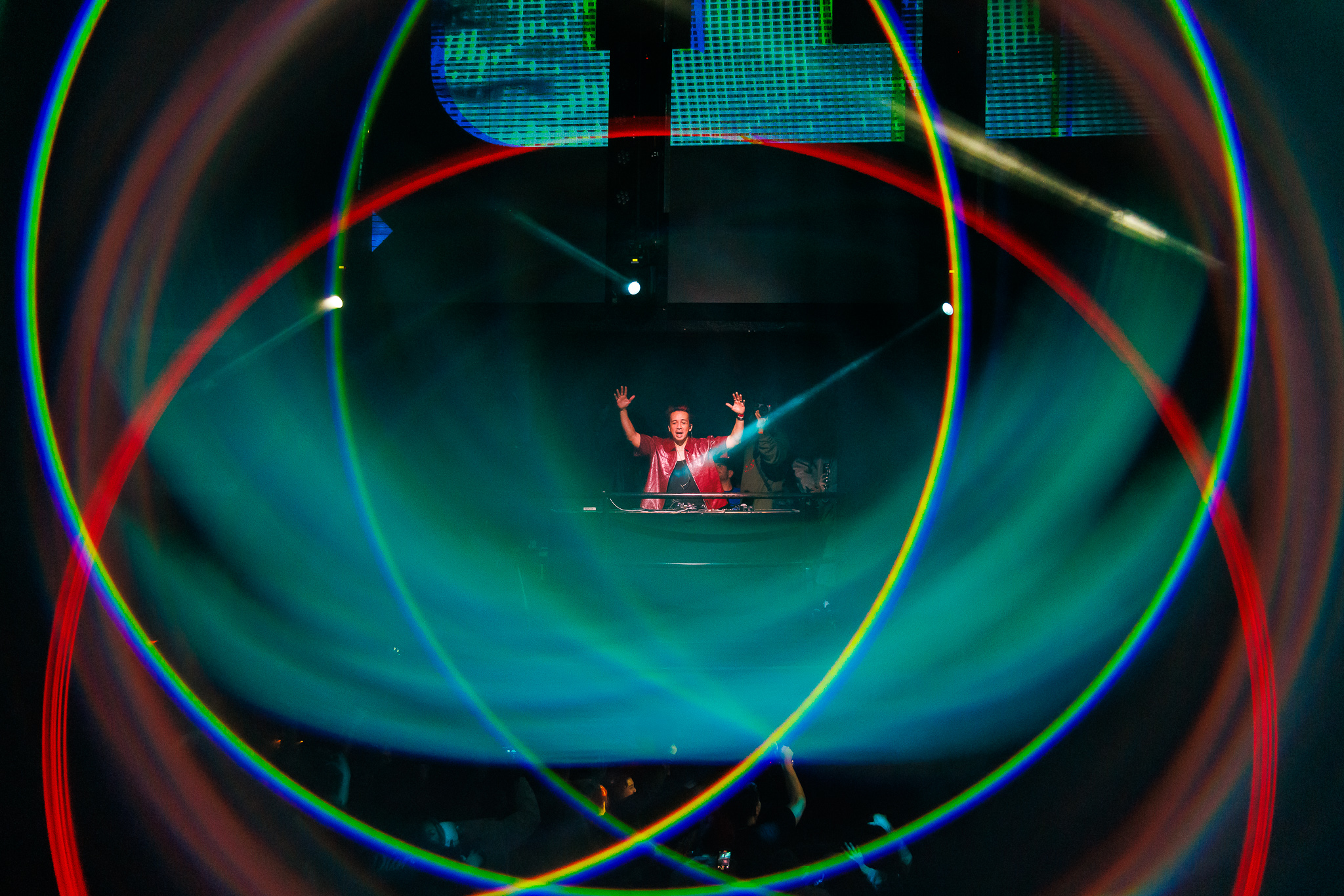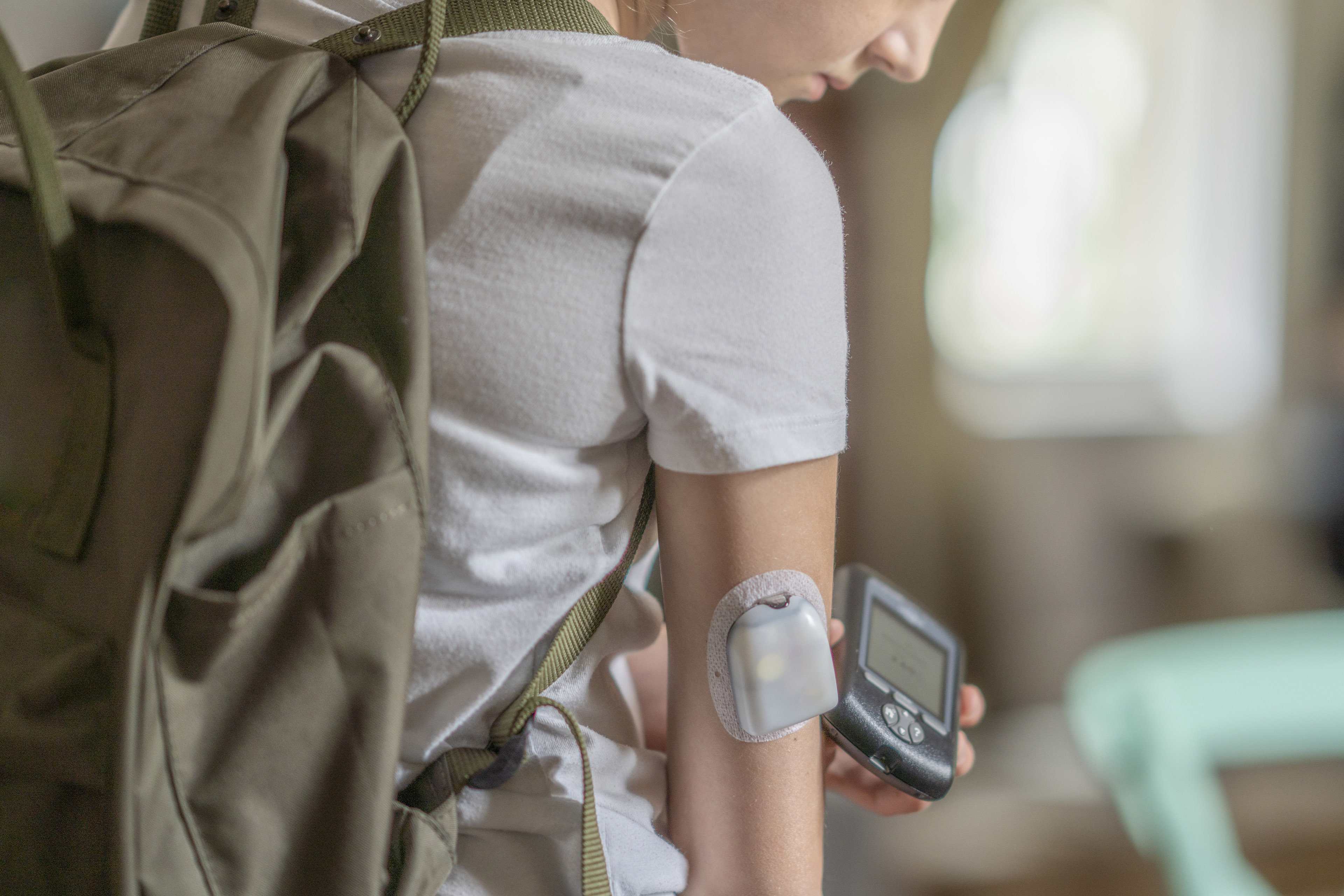Best Gym Flooring Options to Build the Home Gym of Your Dreams
These impact-absorbing, sound-dampening gym flooring options are crucial for new home gyms or upgrading an exercise space.

If you're on a quest to build a home gym, start with the right foundation and invest in the best gym flooring. The right flooring can help cut down on noise, protect your home's floor and foundation, provide padding for your equipment, and reduce strain on your joints. But it's not as simple as throwing down some carpet scraps or yoga mats and hoping for the best.
"For people starting a home gym, you don't have to finish it on day one and get the best of the best of everything," says Chris Howell, CEO of SPX Fit, a consulting firm specializing in custom-built gym designs. Start from the ground up—yes, with gym flooring—then buy quality pieces of equipment that will stand the test of time, like a solid home treadmill, adjustable dumbbells, and a squat rack. After, you can decide if you want more bells and whistles like a smart home gym setup.
The best gym flooring is made from durable material with the right thickness to protect your home, joints, and gear. Our top pick, American Floor Mats Warrior Rubber Gym Tiles, hits the sweet spot in providing a versatile option that fits most people's needs.
Below, Howell offers his top picks for home gym flooring, whether you're still in the preparation stage or looking to upgrade an already-outfitted space.
Related: Effective Leg Workouts at Home That Prove You Don't Need a Full Gym to Get Results
Best Overall Gym Flooring: American Floor Mats Warrior Rubber Gym Tiles
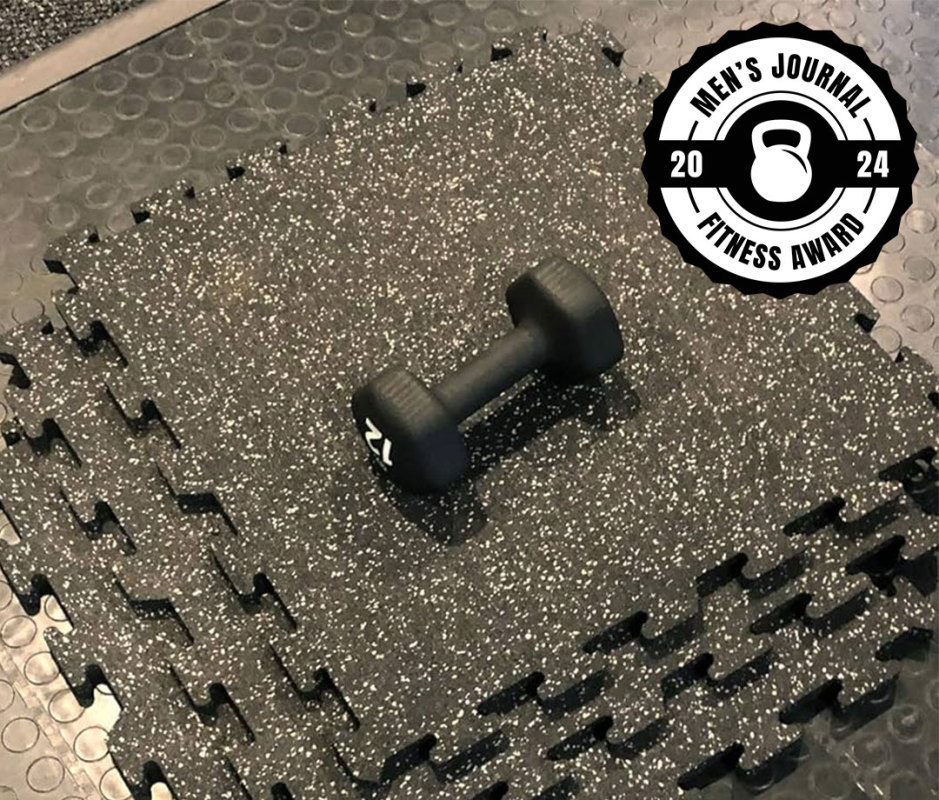
Courtesy Image
Gym flooring tiles allow you to place the supportive squares precisely where they can offer the most protection. They're also versatile enough to fit nearly any sized room, unlike rolled rubber flooring, which must be cut to size and custom-fit. The Warrior Rubber Gym Tiles from American Floor Mats come in various thicknesses, but the 1/2-inch or 3/4-inch tiles offer plenty of support and durability for any home gym lifting needs. The interlocking design keeps the mats firmly in place—no pesky seams separating and causing a tripping hazard.
- Size: 24" x 24" square tile
- Thickness: 1/4", 3/8", 1/2", or 3/4"
- Price: Starting at $28 per 1/2" tile; $37 per 3/4" tile
Related: A Dozen 20-Minute Workouts You Can Do at Home
Best Rubber Gym Flooring: Ecore Performance Rally
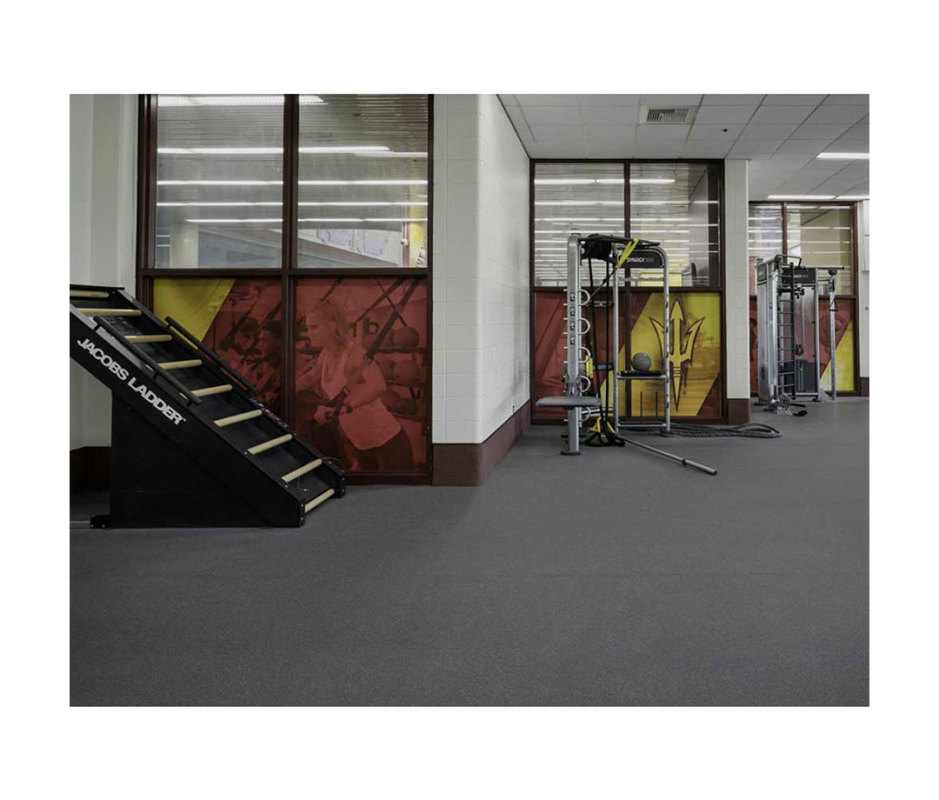
Courtesy Image
"Ecore is probably the biggest distributor and manufacturer of rubber flooring in the country," Howell says. And the brand delivers quality that warrants its foothold in the space.
The brand's Performance Rally Flooring is offered in tiles or a roll in up to 20 different color patterns, so you can add an element of style to your home gym.
"I'm a big fan of Ecore for several reasons: It has multiple densities, and the top layer resists wear and tear," says Merrick Lincoln, CSCS—a Michigan-based physical therapist, assistant professor of kinesiology, and strength coach—who has Ecore flooring in his personal home gym. "I've dragged heavy equipment across it without scratching the surface. The lower-density layer underneath has a nice amount of give, which feels great for plyometrics."
Compared to horse stall mats—a popular alternative for garage gyms—Performance Rally flooring is more expensive, but worth the cost since you don't have to worry about the rubber smell and off-gassing. Overall, it gives a more polished look.
- Size: 23" x 23" interlocking tile or 4' x 25' roll
- Thickness: 14.5mm or slightly more than 1/2"
- Price: Contact rep for exact pricing
Related: 15 Home CrossFit Workouts to Burn Fat and Build Muscle
Best Gym Flooring Tiles: Eleiko Gym Floor Tiles
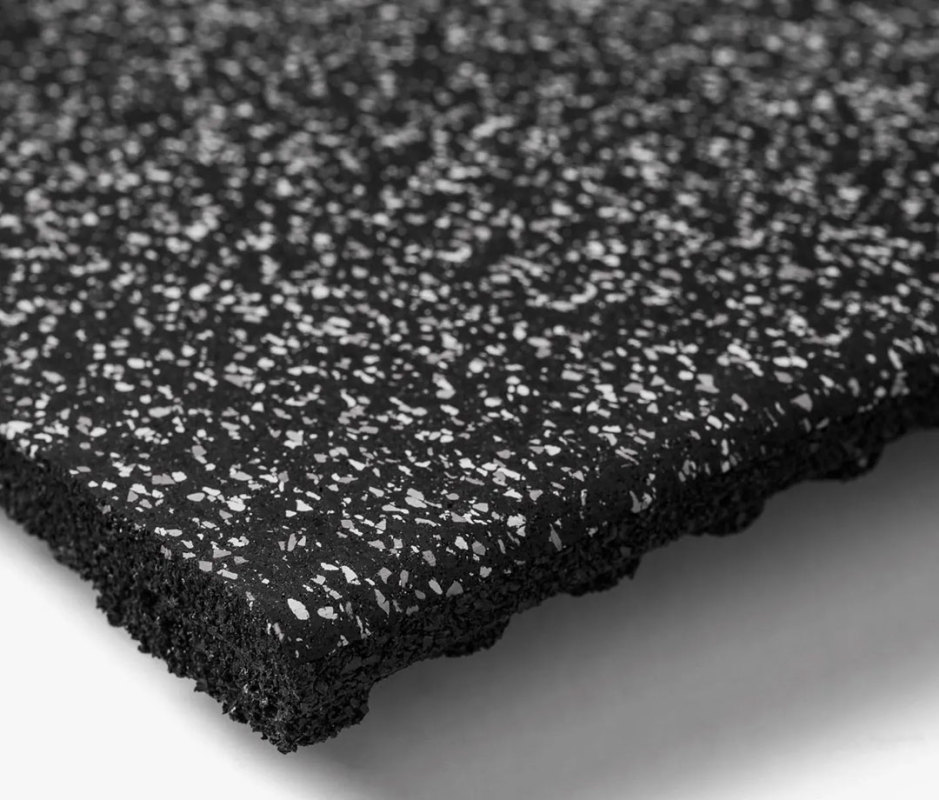
Courtesy Image
When it comes to finding the best "anything" in the weight room, Eleiko is often a top contender. With a long tradition of producing high-quality barbells and weight plates, it's no surprise the brand's gym floor tiles are of a similar caliber.
Eleiko Gym Floor Tiles only come in one thickness—a beefy 1.18 inches—which is thick enough to withstand even the heaviest home gym lifting. If you fancy yourself an Olympic or powerlifter, this is your pick.
- Size: 24" x 24" tile
- Thickness: 1.18"
- Price: $75 per square
Related: Smart Home Gym Equipment to Level Up Your Fitness
Best Durable Gym Flooring: Kodiak Sports Megatile Rubber Flooring
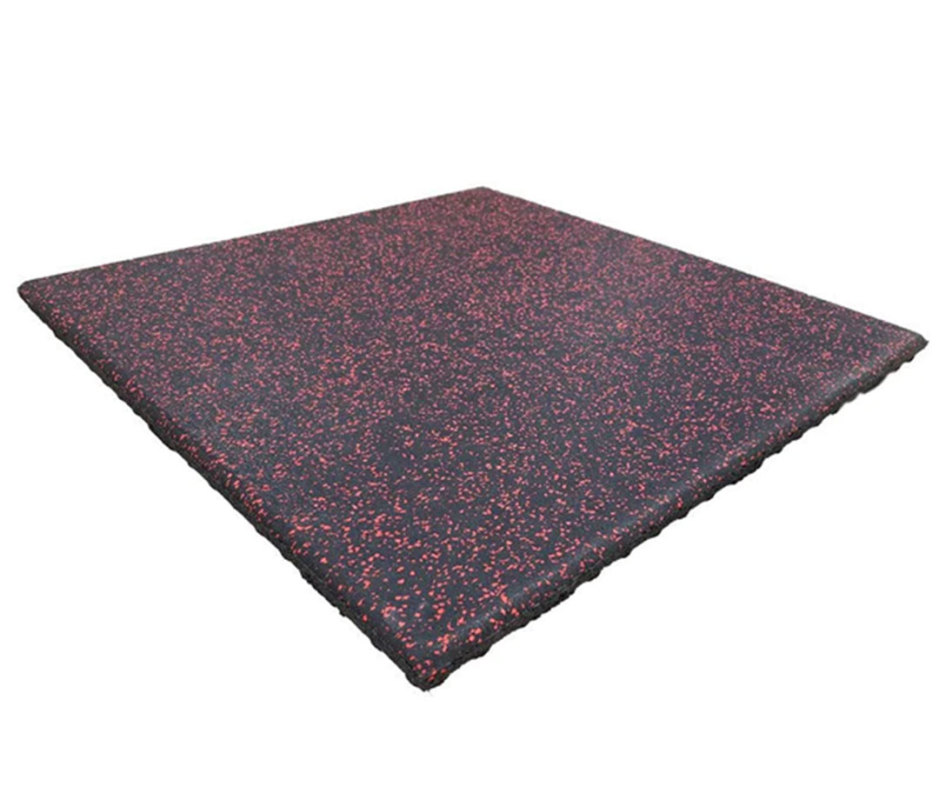
Courtesy Image
So you've set up your garage gym and have your buddies and kids using it, too? With that relatively high traffic and heavy use, your gym flooring must be substantial to handle the increased wear and tear.
Kodiak Sports is a lesser known but reliable Texas-based outfit that Howell has often used. The brand offers 1-inch-thick gym flooring tiles in 2-foot squares. The thickness is on par with some commercial facilities, so it'll survive almost any amount of home gym lifting (even if you start charging for memberships and attendance spikes dramatically).
Kodiak Sports Megatile Rubber Flooring Tiles provide flexibility with your layout, making it more convenient for any size gym. They're available in black or 16-color patterns—if you can get the crew to agree on a motif.
- Size: 24" x 24" tile
- Thickness: 1"
- Price: Check pricing with manufacturer for most accurate information
Related: At-Home Back Workouts to Build Size and Strength
Best Cheap Gym Flooring: Tractor Supply Company Thick Rubber Stall Mats
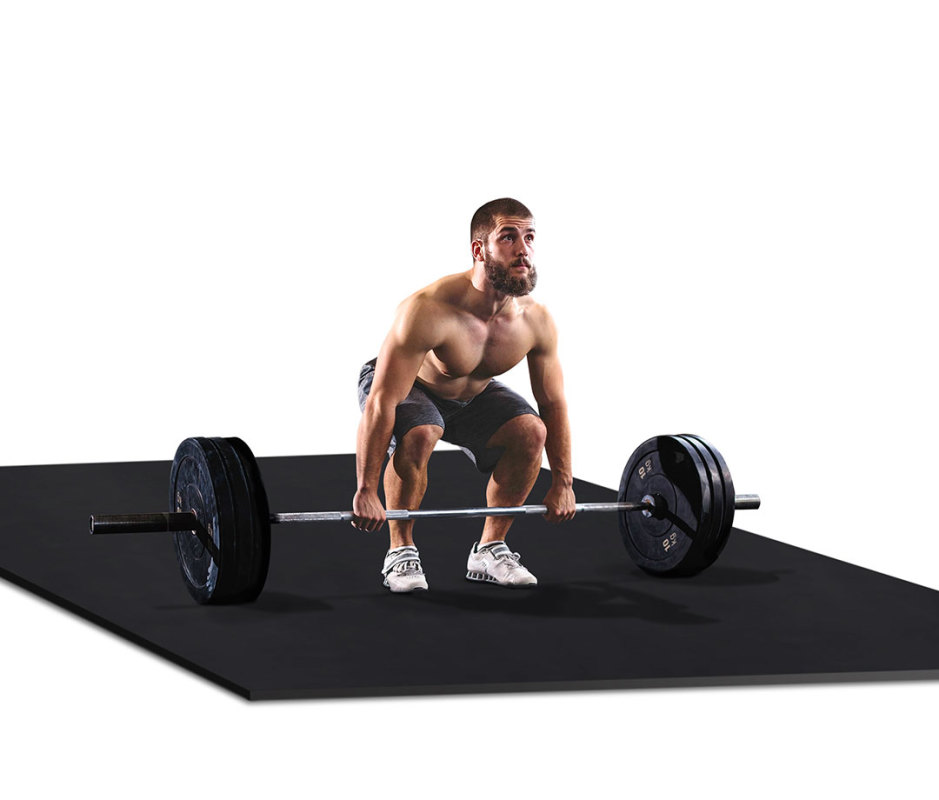
Courtesy Image
Just because you need home gym flooring doesn't mean you necessarily have to choose a product designed for home gyms. Designed to withstand horses and cattle, this is one of the most cost-effective gym flooring options per square footage you can get, says Howell.
Tractor Supply Company Thick RubberStall Mats is an excellent no-frills option for the budget-conscious lifter. At 3/4-inch thickness, the vulcanized rubber mat is tough enough to take whatever your lifting program calls for. Whenever you find yourself standing on the mat between sets, consider repeating the mantra, "Strong as an ox."
- Size: 4' x 6'
- Thickness: 3/4"
- Price: $57
Related: Get A Full Body Workout At Home With This Suspension Training System
More Home Gym Flooring We Love
Best Turf Gym Flooring: Plae Attack Turf
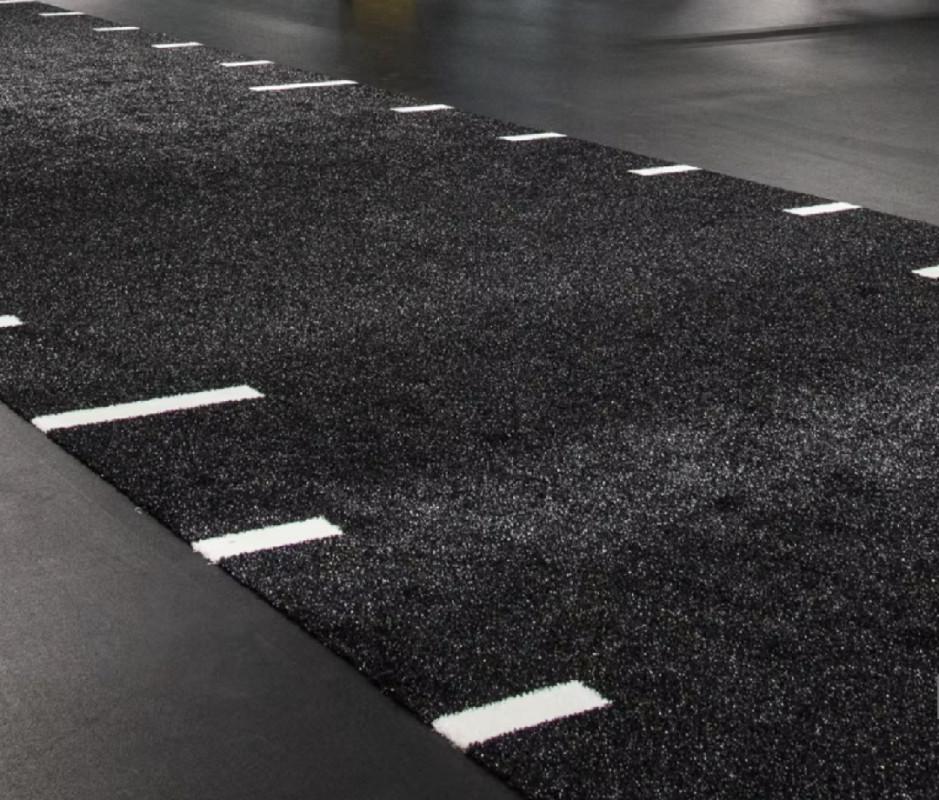
Courtesy Image
One of the more specialized flooring options on the list, dedicated turf can be a solution for lifters looking to incorporate more athletic-based training, including sprints, plyometrics, and sled work, without leaving their home or yard.
Plae's synthetic turf incorporates an underlayer of 3/16-inch foam padding. This provides slight cushioning or "give" for a more natural feel. A benefit of artificial turf is a runway free of rocks, sticks, and other dangerous obstacles you might find outdoors. A clear drawback, however, is the significant space required for such a distinctive piece of flooring. Rogue has a minimum order size of 300 square feet or 15 feet by 20 feet.
- Size: 15' width
- Thickness: 3/4"
- Price: Check pricing with manufacturer for most accurate information
Best Vinyl Gym Flooring: Ecore Heritage Motivate Performance Vinyl Tile
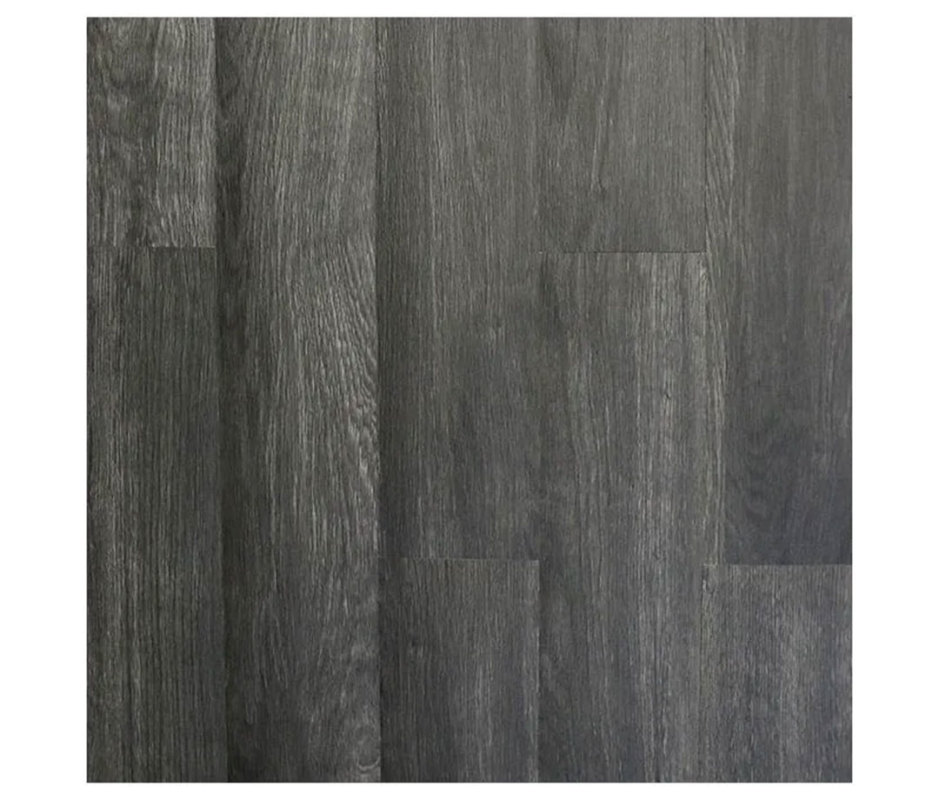
Courtesy Image
Rubber gym flooring is far and away the preferred choice when it comes to weight training, but (gasp) not everybody with a home gym lifts weights. Vinyl flooring isn't durable enough to survive prolonged heavy lifting, but is ideal for cardio training, bodyweight exercise, mobility, yoga, and similar lower-impact exercises.
Ecore's Heritage Motivate Performance Vinyl uses a 5-millimeter (1/10-inch) rubber base layer supporting a 2-millimeter (1/16-inch) vinyl surface. The aesthetic outer vinyl creates a realistic wood appearance in a variety of colors and shades, making it a top choice when a room's visual appeal is as important as its function. The padded sublayer offers greater performance and comfort than actual hardwood.
Notably, Ecore's Heritage Motivate won Silver at the 2023 Best in Biz Awards for the Most Environmentally Friendly Product of the Year.
- Size: 6" x 4' plank or 6.25" x 4' plank
- Thickness: 7mm, or just over 1/4"
- Price: Check pricing with manufacturer for most accurate information
Best Sustainable Gym Flooring: Zandur Sustain Rubber Cork Flooring
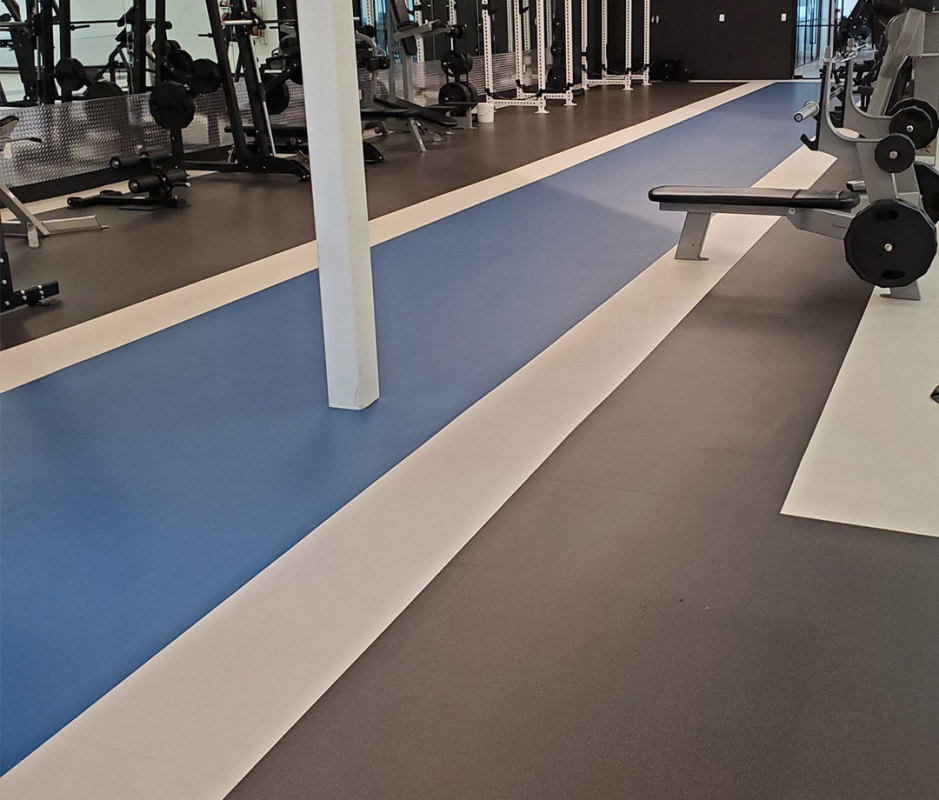
Courtesy Image
You have solar panels on top of your garage gym, and you recycle empty protein powder containers, so maybe you also want to create an eco-friendly workout space using sustainable materials. If that's a priority, consider using cork for your home gym flooring.
Zandur Sustain Rubber Cork Flooring is made from 60 percent renewable and recycled cork. Available up to 3/8 inches, which should be enough to support any moderate-intensity lifting, it's a unique and environmentally conscious alternative to rubber that doesn't compromise durability.
- Size: 39.4" square tile, 38" square tile, 19" square tile, 19" x 38" plank, 9.5" x 38" plank, 4.6" x 38" plank
- Thickness: 1/16", 1/4", or 3/8"
- Price: Check pricing with manufacturer for most accurate information
Best Gym Flooring for Heavy Lifters: American Floor Mats Ultimate Stand-Alone Gym Mats
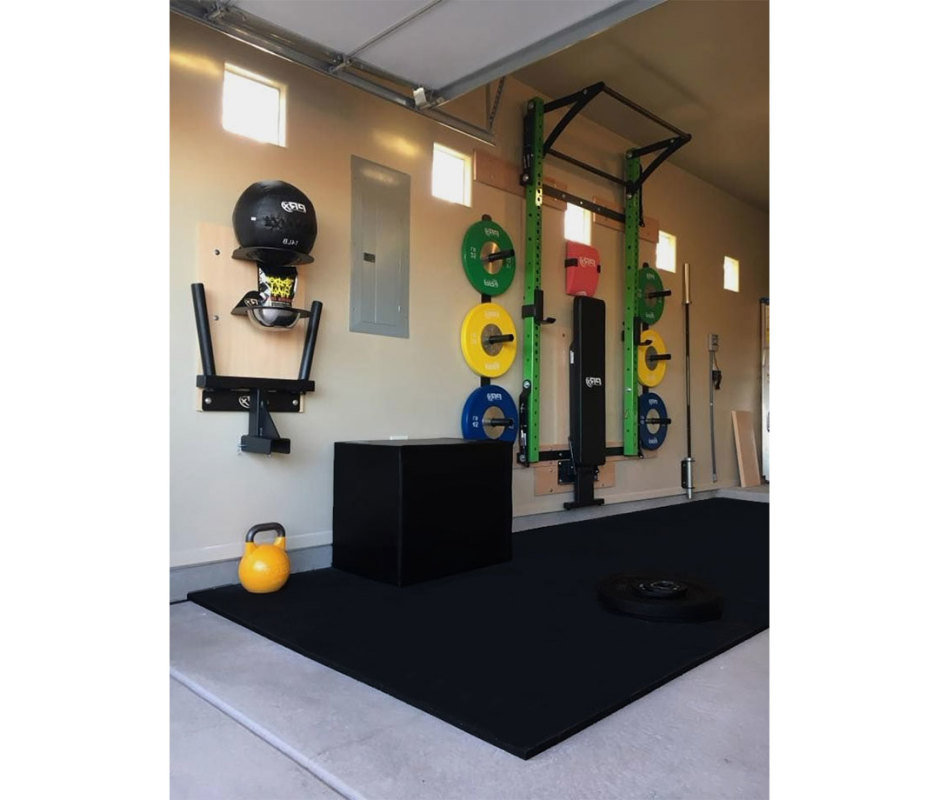
Courtesy Image
If your sole focus in the gym is hitting big PRs, you're probably equipped with a barbell, a pile of weights, and little else. The Ultimate Stand-Alone Gym Mat is a space-efficient and cost-effective choice to support barebones strength training—specifically the 4-foot by 8-foot mat in 3/4-inch thickness. A single 8-foot-long mat will perfectly cover your barbell's footprint, while the 3/4-inch thickness will help to protect your floors from heavy deadlifts. Thicker mats, 1 inch or beyond, may offer slightly greater protection for extremely heavy lifts, but as a standalone kit for lifters, this fits the bill.
- Size: 3' x 4', 4' x 6', 4' x 8', 4' x 10'
- Thickness: 1/4", 3/8", 1/2", or 3/4"
- Price: $212 for 4' x 8', 3/4" thick
Best Soundproof Gym Flooring: Rogue Crash Cushion
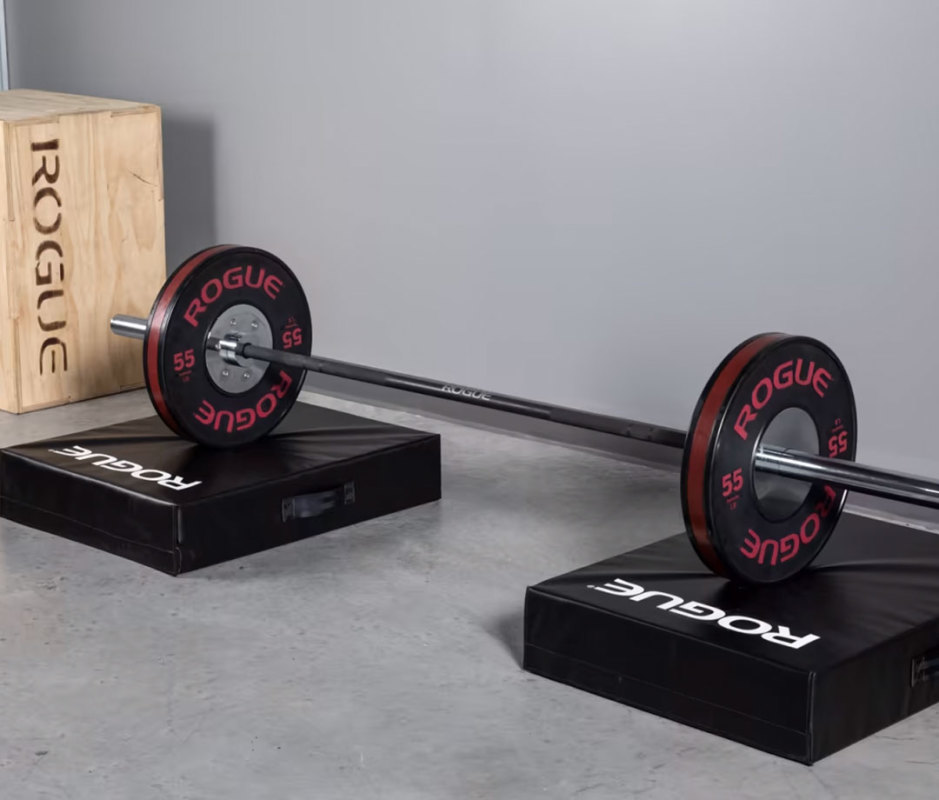
Courtesy Image
OK, so this technically isn't flooring, but there's a good reason why it's on our list. Sound doesn't immediately disappear when it touches the mat. Some soundproof flooring boasts specialized designs that trap or redirect the sound of impact, but Howell asserts individual cushions are more pragmatic.
"If you're lifting in the morning and trying not to wake someone up, these are your best bet," he says.
Rogue's Crash Cushions offer a 6-inch-thick pillow of firm, flexible rebond foam to squelch the noise from dropped deadlifts, cleans, and other high-impact exercises. True soundproof flooring requires wall-to-wall coverage, while these cushions are only needed at the point of impact, directly under your weights.
- Size: 30" x 24"
- Thickness: 6"
- Price: $250 for a pair
Related: The Most Creative Dumbbell Workouts to Build Muscle and Burn Fat at Home
Why You Should Trust Me
When I became an ISSA-certified personal trainer in the early 2000s, I trained clients in their homes using whatever equipment they had on hand. Often, that also meant the workouts were relegated to wooden backyard decks or furnished (and fully carpeted) basements.
The inconsistent environment and lack of dedicated training space directly affected our exercise options and overall program design. Simple pushups were off the menu after "The Splinter Incident of '04." Similarly, carpeted floors embedded with pet hair and allergens made any kind of floor-based ab training a no-go.
A few years later, when I managed a fitness equipment retail store, I developed a better understanding of the home gym equipment industry. We offered everything from cardio machines to cable pulleys to barbells—and, yep, the gym flooring to go under it all.
As I put together this list, I reached out to Merrick Lincoln, CSCS—physical therapist and strength coach—and Howell not only because home gym design is Howell's bread and butter but also because he approaches it with a bigger-picture mindset that many clients overlook.
"Mainly, it's about protecting the foundation of your house," he says. "I've heard nightmare stories of people trying to move out of a rental after they've dropped a bunch of weight, and the landlord is like, 'What the hell did you do here?!' And then they're having to basically pay twice if they would've done it right the first time."
Related: 10 At-Home Workouts to Lose Weight and Build Muscle That Are Shockingly Effective
What Is Gym Flooring?
The inclination may be to simply "make do" with whatever ground happens to be in your training space, whether bare concrete in the garage or carpet in the spare bedroom. Or you might pick up a few inexpensive yoga mats at the local sporting goods store and repurpose them as "lifting mats." However, proper gym flooring can be a critical barrier between your weight plates and the relatively delicate ground beneath.
If you own your home, an errant crack or two isn't just an aesthetic issue, it's a potential starting point for larger problems including water leaks, bugs, or an ever-expanding crack not too different from a car's windshield. If you're renting, it's much more important to take every precaution to avoid permanent structural damage, however superficial it might appear.
Adequate gym flooring can also help to reduce wear and tear on your own body, making each footstep, lunge, or jump more comfortable with slightly reduced impact. This 44-year-old promises that, over time, your joints will thank you.
Related: 50 Best Chest Exercises for 2024
What We Look for in the Best Gym Flooring
When you're choosing home gym flooring, two of the biggest variables are the material and thickness it offers. Knowing the type of training you'll be doing is another influential factor. If you're a dedicated yogi or bodyweight-exercise enthusiast, your setup won't need to be as robust as someone working toward a 500-pound deadlift.
Materials
Material is one of the most substantial differences in home gym flooring options. Even at the same thickness, different materials can provide drastically different protection.
Rubber
"Rubber is the best because it has the strongest density," Howell says. Rubber offers more durability than vinyl, foam, or foam-rubber blends, which are sometimes found in less expensive choices. Ultimately, rubber gym flooring is the proverbial gold standard for safe and effective lifting.
However, Howell warns against buying any generic rubber gym mat you find online. "On Amazon, you're probably not going to get a full rubber product," he says. "You're likely to get a blend with foam. When you step on that, it feels almost like a child's play area." That's what's called EVA foam. You don't want that make-up because, with weights dropping, it can get unsafe.
Vinyl
If weightlifting isn't your training priority, your options expand. Vinyl, typically with a rubber base layer, can provide a nicer-looking finished product than more industrial-looking rubber flooring. This is especially useful if your home gym serves a dual purpose as a family room or other shared space.
However, vinyl comes with a caveat: It's designed to look like a wood veneer top, but scuffs are very noticeable, revealing the rubber underneath.
Carpet
Carpet is another seemingly obvious and abundant choice in a home setting, but Howell again highlights some issues with high-intensity training on a carpeted floor.
"I'd say probably 10 or 15 years ago, you got carpeting for the acoustics," he says. "But you're ripping it up every five to seven years. And it's hard to get the scents out. It's just not a hygienic product."
Related: Hybrid Athlete Training Isn’t a Workout Hack—It’s Better
Thickness
There are some ground rules when it comes to choosing the right thickness. In general, you need more than a quarter-inch.
"Typically, three-eighths is great; half-inch is super safe, even if you're doing CrossFit; and one inch is what you see in college weight rooms and high-footfall commercial gyms," Howell says.
The thickness of your gym mat flooring also relates to how much protection it offers to the subfloor underneath your gym. Even garage gym flooring, for example, would need to be sufficiently thick to protect concrete from repetitive lowering of free weights.
Sound Dampening
Lastly, and arguably most important to a home gym owner, is the sound-dampening quality it offers. However, soundproofing is more complicated than many realize.
Howell works with an acoustician on projects, and while they've found that thickness does [affect] sound absorption, it's not solved by going from a half-inch to one.
"Sound doesn't travel like that," Howell says. "It travels through those pads, through your regular flooring, to the walls, then up. You can, mathematically, reach a [certain] decibel, but you're never going to get library-quiet."
Armed with this knowledge, find the gym flooring that best meets your needs.










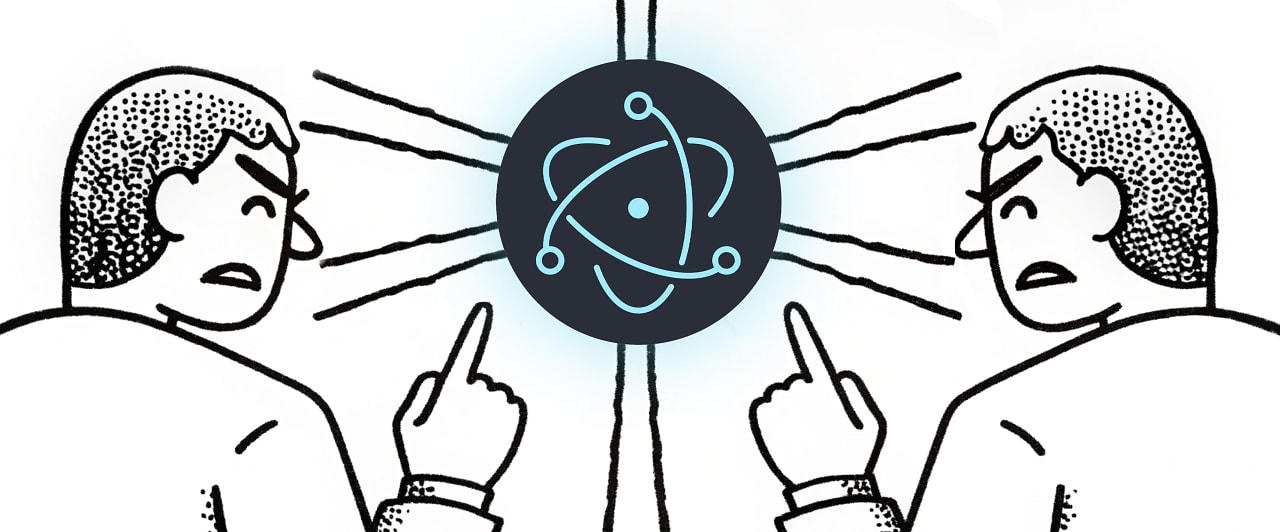


![From Gas Station to Google with Self-Taught Cloud Engineer Rishab Kumar [Podcast #158]](https://cdn.hashnode.com/res/hashnode/image/upload/v1738339892695/6b303b0a-c99c-4074-b4bd-104f98252c0c.png?#)




